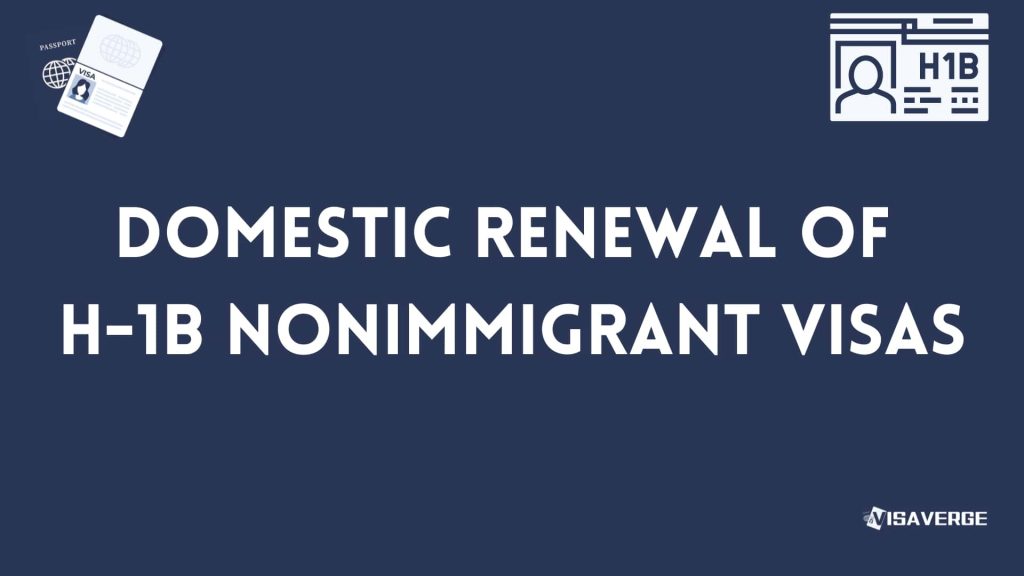Key Takeaways
• Harvard’s SEVP certification was revoked May 22, 2025, but courts quickly reinstated it within days.
• Over 1,800 student visas revoked in early 2025; many restored after April 24 policy change.
• Visa interviews paused May 27; Chinese and Hong Kong students face enhanced scrutiny and delays.
International Students Face New Challenges: 2025 U.S. Student Visa Policies and the Harvard University Controversy
International students hoping to study in the United States 🇺🇸 in 2025 are facing a wave of new visa challenges, policy changes, and legal battles. The latest developments have affected not only students aiming for top schools like Harvard University but also thousands of others from around the world. These changes have created uncertainty for students, universities, and families who are trying to plan for the future.

This article explains what has happened, who is affected, and what steps students and universities need to take now. It also looks at how these changes impact different groups and what might happen next.
What Has Changed for Student Visas in 2025?
Several important events have shaped the student visa process in the United States 🇺🇸 this year:
- Harvard University Visa Controversy: The Trump administration revoked Harvard’s Student and Exchange Visitor Program (SEVP) certification on May 22, 2025, which would have stopped the university from enrolling international students. A court quickly overturned this decision the next day. On June 4, a Presidential Proclamation tried to block foreign students from entering the U.S. to study at Harvard, but a court blocked this order on June 5. By June 9, the Department of State resumed processing student visas for Harvard-bound students.
- Pause on Visa Interviews: On May 27, 2025, the Department of State paused new student visa interviews at U.S. embassies and consulates. This pause created delays and confusion for students waiting to schedule their interviews.
- Increased Scrutiny for Chinese and Hong Kong Applicants: The State Department announced stricter checks for student visa applicants from China 🇨🇳 and Hong Kong, leading to longer wait times and more rejections.
- Visa Revocations: Over 1,800 international students had their F-1 or J-1 visas revoked as part of a broader immigration crackdown. However, a policy change on April 24, 2025, restored the SEVIS status for many of these students.
Who Is Affected by These Changes?
These policy shifts have touched many groups:
- International Students: Anyone applying for a student visa (F-1 or J-1) to study in the United States 🇺🇸, especially those accepted to Harvard University or coming from China 🇨🇳 and Hong Kong, faces more uncertainty.
- Universities: Schools like Harvard University must deal with sudden changes in their ability to enroll international students, which affects their finances and campus diversity.
- Families: Parents and relatives of students are left unsure if their children will be able to start or continue their studies in the United States 🇺🇸.
- Government Officials: The Department of State and the Secretary of State have more power to revoke visas and enforce new rules.
Why Are These Changes Happening?
The Trump administration has focused on tightening immigration rules and increasing security checks. The main reasons given for these changes are:
- National Security: Officials say stricter vetting is needed to protect the country.
- Immigration Control: The administration wants to limit the number of people entering the United States 🇺🇸, including students.
- Concerns About China 🇨🇳: There is special focus on students from China 🇨🇳 and Hong Kong, with fears about espionage and technology theft.
How Do Students Apply for a U.S. Student Visa in 2025?
Despite the new challenges, the basic steps for applying for a student visa remain the same. Here’s a simple breakdown:
- Get Accepted by a U.S. School: First, you must receive an acceptance letter from a U.S. university or college, such as Harvard University.
- Pay the SEVIS Fee: SEVIS stands for Student and Exchange Visitor Information System. You must pay this fee to register in the system.
- Complete the DS-160 Form: This is the main application form for a U.S. visa. You can find the official DS-160 form here.
- Schedule a Visa Interview: Book an appointment at a U.S. embassy or consulate. Due to the recent pause, some students may face delays.
- Attend the Interview: Bring your acceptance letter, SEVIS receipt, DS-160 confirmation, passport, and other required documents.
- Wait for a Decision: After the interview, you will be told if your visa is approved, denied, or needs more review.
Important: If you are from a country affected by travel bans or increased scrutiny, you may face extra questions or longer wait times.
What Is SEVIS and Why Does It Matter?
SEVIS is a government system that tracks international students and exchange visitors in the United States 🇺🇸. Schools must be certified by SEVP (Student and Exchange Visitor Program) to enroll foreign students. If a school loses its SEVP certification, like Harvard University almost did, it cannot accept new international students.
Students must also keep their SEVIS records up to date by:
- Registering with their school when they arrive
- Staying enrolled full-time
- Reporting any changes, such as address or program of study
If a student’s SEVIS status is terminated, they may lose their legal right to stay in the United States 🇺🇸.
What Happened with Harvard University?
The events at Harvard University in May and June 2025 show how quickly things can change for international students:
- May 22: The Trump administration revoked Harvard’s SEVP certification, which would have blocked new international students from enrolling.
- May 23: A court order overturned the revocation, allowing Harvard to keep its certification.
- June 4: A Presidential Proclamation tried to stop foreign students from entering the United States 🇺🇸 to study at Harvard.
- June 5: A court blocked this order, protecting students’ right to enter.
- June 9: The Department of State resumed processing student visas for Harvard-bound students.
These rapid changes created confusion and stress for students, families, and university staff. According to analysis by VisaVerge.com, such policy swings make it hard for universities to plan and for students to feel secure about their future in the United States 🇺🇸.
Why Were So Many Student Visas Revoked?
In early 2025, over 1,800 international students had their F-1 or J-1 visas revoked. This was part of a larger effort to tighten immigration controls. Senator Marco Rubio had estimated that only 300 students would be affected, but the real number was much higher.
Losing a visa can have serious consequences:
- Students may be forced to leave the country.
- They may lose their right to work or do internships.
- Their academic plans can be disrupted, sometimes permanently.
On April 24, 2025, a policy change restored the SEVIS status for many of these students, allowing them to stay and continue their studies.
What Does “Enhanced Scrutiny” Mean for Chinese and Hong Kong Students?
The Department of State has announced stricter checks for students from China 🇨🇳 and Hong Kong. This means:
- Longer Processing Times: Applications may take weeks or months to review.
- More Rejections: There is a higher chance that a visa will be denied.
- Extra Paperwork: Students may be asked for more documents or proof of their plans.
Experts say this could discourage some students from applying to U.S. schools, which could hurt universities that rely on international students for tuition and cultural diversity.
What Are the Main Steps to Maintain Student Status?
Once a student arrives in the United States 🇺🇸, they must follow certain rules to keep their visa valid:
- Register with SEVIS: Check in with your school’s international office when you arrive.
- Stay Enrolled Full-Time: You must take a full course load each semester.
- Update SEVIS Records: Tell your school if you change your address, major, or other important details.
- Follow Work Rules: Only work as allowed by your visa type.
Breaking these rules can lead to loss of status and possible deportation.
What Are the Impacts on Universities Like Harvard University?
Universities face several challenges because of these policy changes:
- Uncertainty in Enrollment: Sudden changes in visa rules make it hard to know how many international students will be able to attend.
- Financial Impact: Many universities, including Harvard University, rely on international students for tuition revenue.
- Loss of Diversity: International students bring different perspectives and ideas, which enrich campus life.
Schools must now spend more time and money helping students deal with visa problems and legal challenges.
What Are the Legal and Human Implications?
Many students and universities have turned to the courts to fight visa revocations and policy changes. Lawyers argue that some of these actions are unfair and violate students’ rights.
- Legal Challenges: Courts have blocked several government actions, such as the attempt to stop Harvard-bound students from entering the United States 🇺🇸.
- Student Stress: Uncertainty about visas causes anxiety and disrupts students’ lives.
- Family Concerns: Families worry about their children’s safety and future.
What Is the Future Outlook for Student Visas?
Looking ahead, several trends are likely to continue:
- Ongoing Scrutiny: The government is expected to keep focusing on security and immigration control, especially for students from certain countries.
- More Legal Battles: As policies change, more students and universities may go to court to protect their rights.
- University Adjustments: Schools may need to find new ways to attract and support international students.
What Should Students and Universities Do Now?
If you are a student planning to study in the United States 🇺🇸, or a university admitting international students, here are some practical steps:
- Stay Informed: Check official sources like the U.S. Department of State for the latest updates.
- Prepare Documents Early: Gather all required paperwork and apply as soon as possible.
- Work with Your School: Use your university’s international office for help with SEVIS, visa questions, and legal issues.
- Know Your Rights: If your visa is revoked or your SEVIS status is terminated, seek legal advice and consider your options.
Where Can You Find More Information?
For official details and updates, visit these government websites:
- U.S. Department of State – for visa policies and embassy information
- U.S. Immigration and Customs Enforcement (ICE) – for enforcement and student rules
- Student and Exchange Visitor Program (SEVP) – for SEVIS and school certification
If you need to fill out the DS-160 visa application form, you can find it here.
Final Thoughts
The landscape for international students in the United States 🇺🇸 is changing quickly. Harvard University’s recent visa controversy shows how government actions can affect thousands of students overnight. Enhanced scrutiny, visa revocations, and sudden policy shifts create real challenges for students, families, and universities.
By staying informed, preparing carefully, and working closely with schools and legal advisors, students can improve their chances of success. Universities must also adapt to protect their international communities and maintain their global reputation.
As reported by VisaVerge.com, the coming months will likely bring more changes, legal battles, and adjustments for everyone involved in international education. For now, careful planning and up-to-date information are the best tools for students and schools facing the new visa roadblocks of 2025.
Learn Today
SEVP → Student and Exchange Visitor Program; certifies schools to enroll international students legally in the U.S.
SEVIS → Student and Exchange Visitor Information System; tracks international students during their U.S. studies.
F-1 Visa → Non-immigrant visa allowing international students to pursue academic studies in the United States.
J-1 Visa → Visa for exchange visitors participating in approved programs such as research or teaching.
Presidential Proclamation → A decree by the U.S. President that can affect immigration policies, including visa restrictions.
This Article in a Nutshell
In 2025, U.S. student visas face challenges like revoked certifications, paused interviews, and heightened scrutiny targeting Harvard and Chinese students. Legal battles protect students amid uncertainty, impacting universities and families globally. Staying informed and complying with visa rules is vital for success in this evolving landscape.
— By VisaVerge.com













